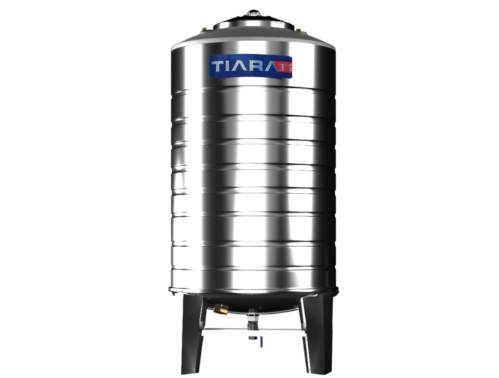
Stainless steel tanks have emerged as a crucial component in modern agricultural practices, offering a reliable and efficient solution for storing fertilizer-mixed irrigation water. With the increasing demand for food production and the need for sustainable farming methods, the role of these tanks has become more significant. This article explores the benefits of using stainless steel tanks for storing fertilizer-mixed irrigation water and their impact on agricultural productivity.
Advantages of Stainless Steel Tanks
Stainless steel tanks offer several advantages over traditional storage methods, making them an ideal choice for storing fertilizer-mixed irrigation water:
Durability and Longevity: Stainless steel is renowned for its strength and resistance to corrosion, ensuring that the tanks have a long lifespan. This durability is essential when storing fertilizer-mixed water, which can be corrosive due to the chemical properties of fertilizers. Stainless steel tanks can withstand harsh environmental conditions, reducing the need for frequent replacements and maintenance.
Hygiene and Cleanliness: Stainless steel is a non-porous material, meaning it does not absorb or retain contaminants. This property makes stainless steel tanks highly hygienic and easy to clean. When storing fertilizer-mixed irrigation water, maintaining cleanliness is crucial to prevent the growth of harmful bacteria and algae that can affect crop health. Stainless steel tanks ensure that the water remains pure and safe for agricultural use.
Chemical Compatibility: Fertilizers often contain various chemicals that can react with certain materials, causing degradation and contamination. Stainless steel is chemically inert, meaning it does not react with the chemicals present in fertilizers. This compatibility ensures that the stored water maintains its quality and effectiveness, providing consistent and reliable irrigation.
Impact on Agricultural Productivity
The use of stainless steel tanks for storing fertilizer-mixed irrigation water has a direct impact on agricultural productivity:
Consistent Water Supply: Efficient storage of fertilizer-mixed irrigation water ensures a consistent and reliable water supply for crops. Farmers can control the timing and amount of irrigation, optimizing water usage and preventing wastage. This consistency is crucial for maintaining healthy crops and achieving high yields.
Improved Crop Health: Stainless steel tanks help maintain the quality and purity of fertilizer-mixed water, ensuring that crops receive the necessary nutrients without contamination. Proper nutrient delivery enhances crop health, leading to increased resistance to diseases and pests. Healthy crops are more likely to produce higher yields, contributing to food security and economic growth.
Sustainable Farming Practices: The durability and longevity of stainless steel tanks contribute to sustainable farming practices. By reducing the need for frequent replacements and maintenance, farmers can minimize their environmental footprint. Additionally, the efficient use of fertilizer-mixed water helps conserve water resources, promoting sustainable agriculture.
Cost-Effectiveness: Although the initial investment in stainless steel tanks may be higher than traditional storage methods, the long-term benefits outweigh the costs. The extended lifespan, reduced maintenance, and improved crop productivity make stainless steel tanks a cost-effective solution for farmers. By investing in high-quality storage, farmers can achieve better returns on investment and ensure the sustainability of their operations.
Conclusion
Stainless steel tanks play a vital role in modern agriculture by providing a reliable and efficient solution for storing fertilizer-mixed irrigation water. Their durability, hygiene, chemical compatibility, and temperature regulation make them an ideal choice for farmers seeking to optimize water storage and improve crop productivity. By ensuring a consistent water supply, maintaining crop health, and promoting sustainable farming practices, stainless steel tanks contribute to the overall success and sustainability of agricultural operations. As the demand for food production continues to rise, the adoption of stainless steel tanks will be instrumental in meeting the challenges of modern agriculture and ensuring food security for future generations.


